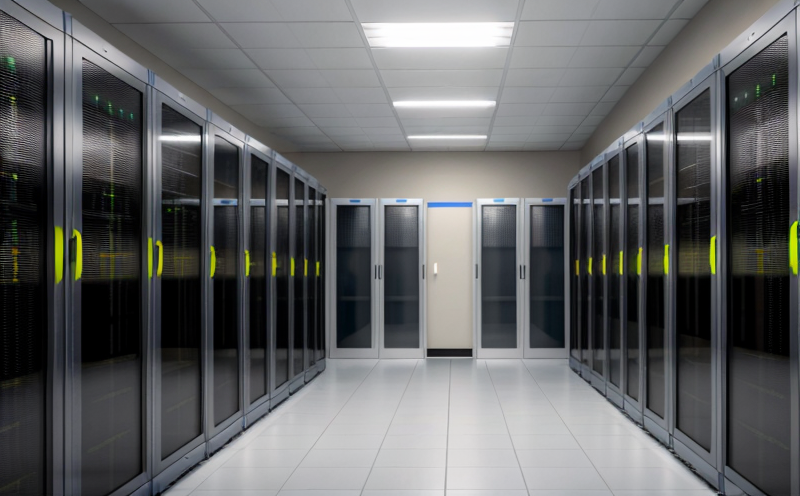Data Center Performance Testing: Ensuring Uptime and Efficiency
In todays digital age, data centers are the backbone of modern business operations. They provide a secure and reliable infrastructure for storing, processing, and distributing vast amounts of data. However, with the increasing complexity and scale of data centers, ensuring their performance has become a significant challenge. Data center performance testing is essential to guarantee that these critical facilities operate efficiently, reliably, and within specified parameters.
What is Data Center Performance Testing?
Data center performance testing involves evaluating various aspects of a data centers operation, including its ability to handle workload demands, manage power consumption, maintain temperature ranges, and ensure high availability. This comprehensive evaluation helps identify areas that require improvement or optimization, enabling data center operators to take proactive measures to prevent downtime and reduce costs.
Importance of Data Center Performance Testing
Data center performance testing is crucial for several reasons:
Ensures High Availability: By simulating various scenarios and workloads, data center performance testing identifies potential bottlenecks and ensures that the facility can operate reliably even during peak demand periods.
Optimizes Resource Utilization: Testing helps data center operators optimize resource utilization, reduce energy consumption, and minimize waste by identifying areas where resources are not being used efficiently.
Reduces Downtime: By anticipating and addressing potential issues before they occur, data center performance testing minimizes downtime and ensures that business operations remain uninterrupted.
Enhances Security: Testing evaluates the security posture of the data center, ensuring that sensitive data is protected from unauthorized access or breaches.
Key Components of Data Center Performance Testing
Data center performance testing encompasses several key components:
Workload simulation: This involves simulating various workloads and scenarios to evaluate the data centers ability to handle demand.
Power consumption measurement: This assesses the facilitys power usage and identifies opportunities for energy efficiency improvements.
Temperature monitoring: This ensures that temperature ranges are within specified limits, preventing overheating or undercooling issues.
High availability testing: This evaluates the data centers ability to maintain uptime even during component failures or other disruptions.
Types of Data Center Performance Testing
There are several types of data center performance testing:
Load testing: This involves simulating a large number of users or transactions to evaluate the data centers scalability and capacity.
Stress testing: This applies a high level of stress to the system, pushing it beyond normal operating conditions to identify its breaking point.
Endurance testing: This involves subjecting the data center to prolonged periods of simulated workload to assess its ability to maintain performance over time.
Failure testing: This evaluates the data centers ability to recover from component failures or other disruptions.
Best Practices for Data Center Performance Testing
To ensure effective data center performance testing, follow these best practices:
Develop a comprehensive testing plan: Identify specific testing objectives and develop a detailed plan outlining testing scope, timeline, and resources required.
Use industry-standard tools and methodologies: Utilize recognized standards and best practices to ensure consistency and comparability with other facilities.
Involve multiple stakeholders: Engage with IT, operations, and management teams to ensure that testing addresses business requirements and priorities.
Continuously monitor and analyze results: Regularly review test data and identify areas for improvement, implementing changes as needed.
QA Section
Here are some frequently asked questions about data center performance testing:
Q: What is the purpose of data center performance testing?
A: The primary goal of data center performance testing is to ensure that these critical facilities operate efficiently, reliably, and within specified parameters. This involves evaluating various aspects of a data centers operation, including its ability to handle workload demands, manage power consumption, maintain temperature ranges, and ensure high availability.
Q: What are the benefits of data center performance testing?
A: Data center performance testing offers several key benefits, including ensuring high availability, optimizing resource utilization, reducing downtime, and enhancing security.
Q: How often should data center performance testing be conducted?
A: The frequency of data center performance testing depends on various factors, such as facility size, workload demands, and business requirements. Generally, it is recommended to conduct testing at least annually or semi-annually.
Q: What types of tools are used for data center performance testing?
A: Various industry-standard tools and methodologies can be employed for data center performance testing, including load simulators, power measurement devices, temperature sensors, and high availability monitoring software.
Q: Can data center performance testing be outsourced to third-party providers?
A: Yes, many organizations choose to outsource data center performance testing to specialized vendors or consultants with expertise in this area. This can help ensure that testing is conducted effectively and efficiently while minimizing internal resource requirements.
Q: How do I develop a comprehensive testing plan for my data center?
A: To create an effective testing plan, identify specific testing objectives, and outline the scope, timeline, and resources required. Engage with IT, operations, and management teams to ensure that testing addresses business requirements and priorities.
Q: What are some common challenges associated with data center performance testing?
A: Some typical challenges include:
Resource constraints: Insufficient personnel or budget can limit testing scope and frequency.
Data center complexity: Large or complex facilities may require specialized expertise and equipment for effective testing.
Balancing workload demands: Achieving an optimal balance between workload simulation and real-world operating conditions.
Q: Can data center performance testing be used to optimize resource utilization?
A: Yes, testing can identify opportunities for energy efficiency improvements by evaluating power consumption and providing recommendations for optimization. Additionally, it can help reduce waste by identifying areas where resources are not being utilized efficiently.
In conclusion, data center performance testing is a critical component of ensuring uptime and efficiency in modern business operations. By understanding the importance, key components, types, and best practices outlined above, organizations can develop effective strategies for evaluating and optimizing their facilities.

































